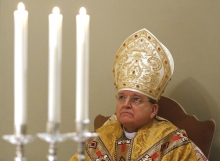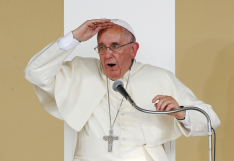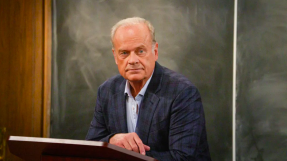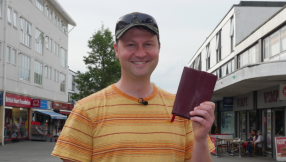Divisions are looming in advance of the Pope's Synod on the Family next month.
Nearly 800,000 Catholics, including more than 200 cardinals, bishops and archbishops, have written to the Pope appealing for clarity and warning of a "breach" in the Church over gays and marriage.
At the same time, an influential group of lesbian and gay Catholics from the UK have called in advance of the synod for the Church to take the opportunity of the coming Synod to look again at Church teachings because, the group says, they have "caused immense psychological, spiritual, and pastoral damage not only to homosexual persons, but also to their parents and families."
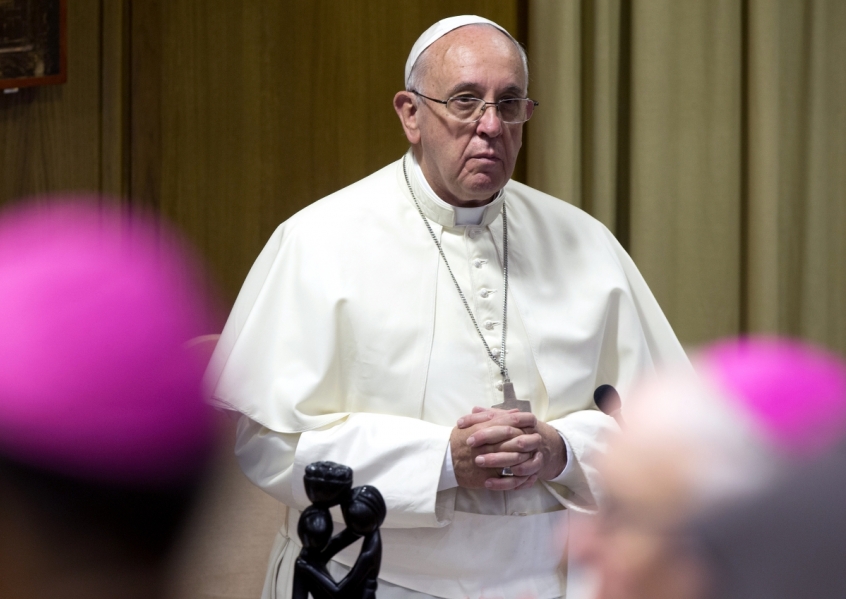
The conservative lay group Voice of the Family has submitted a 'Filial Appeal' signed by 790,190 Catholics, including 201 cardinals, archbishops and bishops, to Pope Francis calling on him to say "a clarifying word" to dissipate the "widespread confusion arising from the possibility that a breach has been opened within the Church that would accept adultery—by permitting divorced and then civilly remarried Catholics to receive Holy Communion—and would virtually accept even homosexual unions when such practices are categorically condemned as being contrary to Divine and natural law."
The appeal was launched after the first Synod on the Family ended in October last year and has gained hundreds of thousands of signatures in the last few months.
Tommaso Scandroglio, professor of Ethics and Bioethics in the European University of Rome and spokesman for the appeal, said: "The number of signatures collected and the number of personalities who have signed indicate that a substantial number of believers are very worried about certain theological tendencies present in the Church today."
Signatories include Cardinal Jorge Medina Estévez, Prefect Emeritus of the Congregation for Divine Worship, Cardinal Geraldo Majella Agnelo, former Primate of Brazil and many other leading cardinals and archbishops as well as leaders of pro-family and pro-life movements from every continent.
At the same time, LGBT Catholics from the UK's Westminster diocese published a paper in advance of the synod noting that the bishops of England and Wales have sought to interpret the Church's teaching on human sexuality "in ways which enable the inclusion rather than exclusion of the Church's lesbian, gay, bisexual, and trans members."
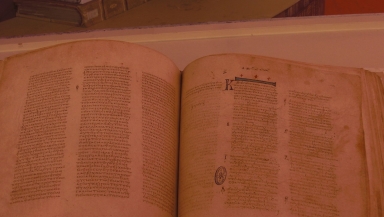
They focus on celibacy, arguing that rather than it being seen as a vocation to which not everyone is either called or graced, celibacy is too easily demanded of LGBT people.
"It often seems that for some priests who are not comfortable in their own celibacy option, in the context of confession or spiritual direction, they seek to impose burdens of celibacy upon those who come before them, as if in revenge for what they have lost in their own lack of sexual relationships."
They say: "The Church's doctrinal statements on sexuality, sexual orientation, and gender often appear to be over-preoccupied with sexual expression and genital acts, rather than relationality."
Many Catholics fail to engage with teaching statements because they so often appear to be "falsely bolstered by texts from scripture or tradition" which are taken out of context, they say.
Even for many heterosexual Catholics, their experience of the nuclear family sometimes seems more like a nuclear bomb, they argue .
Various Church documents have described homosexual relations as a "serious depravity", as a consequence of rejecting God and as "intrinsically disordered".
Today, the Church provides a badly needed context for the care of the human person when she refuses to consider the person as a "heterosexual" or a "homosexual" and insists that every person has a fundamental identity: the creature of God, and by grace, his child and heir to eternal life.' (16).
Harsh laws against homosexuality in some countries continue to drive the epidemic underground and militate against responsible public health programmes to combat the further spread of HIV and other life-threatening viruses.
The paper claims even children are sometimes refused baptism, entry to Catholic schools, reception of First Communion or the Sacrament of Confirmation due to the sexual orientation of their parents.










